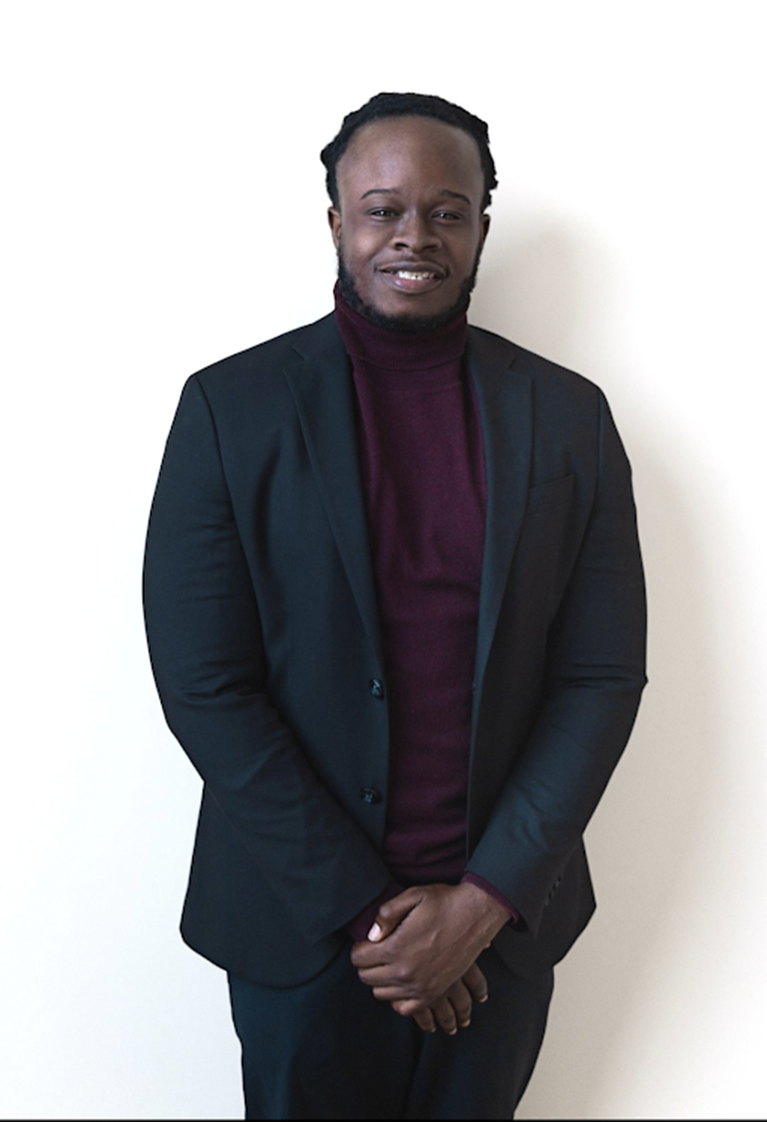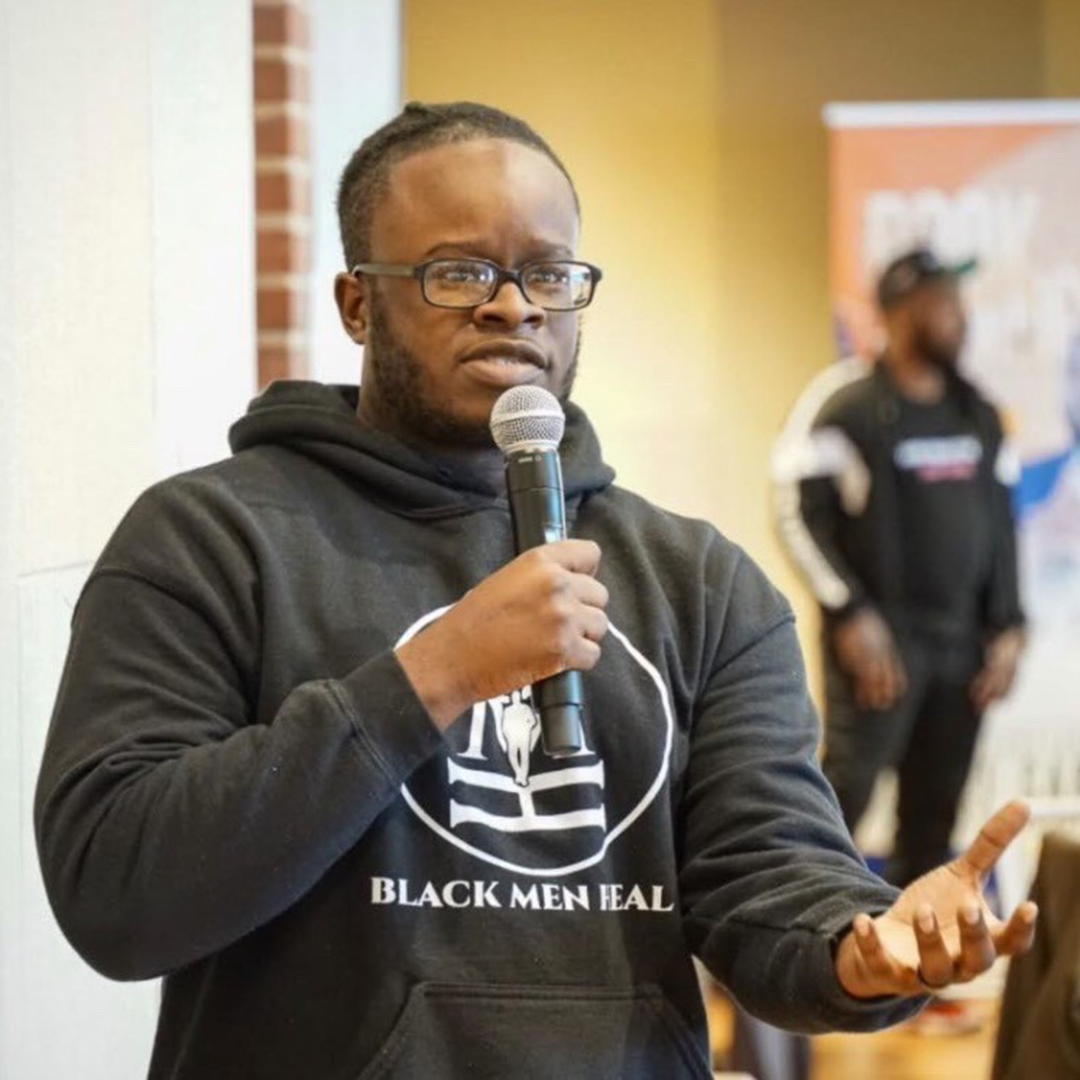Health Services Administration Student Reggie Howard Innovates Mental Health Services for Black Community
February 22, 2023
 “In 2015, I wrote on my vision board that I wanted to attend Drexel University,” shares Reggie Howard, health services administration ‘25. “It always stood out to me, and here I am.”
“In 2015, I wrote on my vision board that I wanted to attend Drexel University,” shares Reggie Howard, health services administration ‘25. “It always stood out to me, and here I am.”
As a mental health advocate, father and student, Howard invests himself fully in everything he does. Howard first came to Drexel as a participant in the Healing Hurt People program at the Center for Nonviolence and Social Justice in the Dornsife School of Public Health. The program is a hospital and community-linked violence intervention program that provides an integrated care model of trauma- focused healing services to survivors of violent injury or witnesses to such violence between the ages of 8 and 35. Howard joined Health Hurt People in 2020 and, from there, found connections to Stephen & Sandra Sheller 11th Street Family Health Services, whose team he joined as a community engagement specialist. Now a member of the Drexel community, Howard felt that the time had come for him to return to school.
“I thought I was going to become a therapist because of my background in mental health,” Howard shares. Learning from the Center for Nonviolence and Social Justice, Howard wanted to extend the knowledge and trauma-informed care training he received into his community. As he considered his academic options, Howard felt a pull to think big.
“Dr. Roberta Waite served as a mentor for me, and she suggested that I consider Health Services Administration because it combined my interest in business as well as health and wellness,” Howard explains. “When we talk about diversity, equity and inclusion and topics like Black History Month, we have to recognize that there is a lack of representation of the Black community in the health industry, especially on the administrative side.” In his conversations with Dr. Waite, the former associate dean for Community-Centered Health & Wellness and Academic Integration and executive director of the Stephen & Sandra Sheller 11th St. Family Health Services, Howard learned that the intersection of his skills in business and community health could affect change at a higher level.
“I am interested in change that can be made beyond just the individual,” Howard shares. “I want to be in the room where important decisions are being made that affect my community.”
 Howard demonstrates this commitment to action as he has served as a member of the Board of Diversity, Equity and Inclusion at CNHP since 2021. This advisory board aims to provide strategic counsel on issues pertaining to diversity, equity and inclusion at the College, and Howard attests that he has gained insights on how to foster equity from serving on the board. “My experience has been very educational and informative,” says Howard. “The community that we’ve created is leading the path for the next generation of students, and I believe that the more conversations we have about issues of inclusion, the greater progress we will make.”
Howard demonstrates this commitment to action as he has served as a member of the Board of Diversity, Equity and Inclusion at CNHP since 2021. This advisory board aims to provide strategic counsel on issues pertaining to diversity, equity and inclusion at the College, and Howard attests that he has gained insights on how to foster equity from serving on the board. “My experience has been very educational and informative,” says Howard. “The community that we’ve created is leading the path for the next generation of students, and I believe that the more conversations we have about issues of inclusion, the greater progress we will make.”
Howard shares that while attending school as a husband and father certainly leads to a busy schedule, he appreciates the perspective it has given when thinking about his academic journey.
“Usually, when you go to school, you learn theory that you put into practice after graduation,” Howard explains. “I am coming in with a lot of practice, as I’ve been out in the community, and I’ve worked for health care organizations. But now I get to learn the theories that underpin this experience.”
Luckily, Howard isn’t alone in his pursuit of an undergraduate degree. His wife is currently a student in the School of Education at Drexel and Howards says that homework is a family affair. “Our son can’t tell us nothing about homework,” Howard laughs. “We’ve all got work to do!”
If fatherhood and academics weren’t enough to fill his day, Howard is a prolific podcaster. In 2018, Howard created the Black Mental Health Podcast, a show that is “dedicated to understanding and unraveling the mental issues in the African American community.” The podcast shares “therapeutic stories” and covers a wide range of topics, including anxiety, depression, trauma and addiction. While the show is not intended to be a replacement for therapy, Howard attests that creating space for mental health conversation is critical to wellbeing, especially for marginalized communities who have historically lacked access to the tools and spaces for this healing work.
As the podcast grew, Howard learned that while he could draw on his own background with mental health and mental health advocacy, he needed to expand the lens of the show to encompass a wider range of identities and experiences.
“From doing this show, I learned that I could facilitate a conversation, but I shouldn’t be the only voice in the room. There are many identities I will never have and never experience so I can’t speak to those. That is why I chose to bring people onto the podcast and share what they know.”
“Now I am learning that even the Black experience is not a monolith,” Howard expands, “From my conversations, I am feeling inspired to speak with more people, especially outside the United States. I want to talk to the world and serve as a platform for their experience; I don’t want to speak for someone who can speak for themselves.”
“Before coming to Drexel,” Howard concludes, “I thought that helping people with their mental health meant that I had to serve as a clinician. Now I am thinking about how I can help more people than I could in a one-to-one model and how I can make the biggest impact possible for my community.”
Written by Izzy López